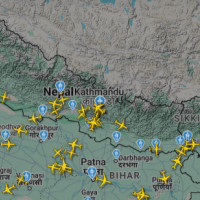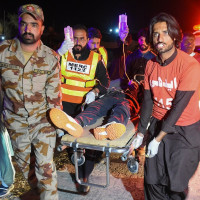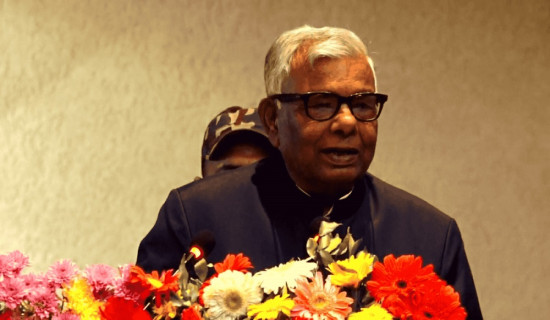- Thursday, 13 March 2025
Dhanushadham declared free from power pilferage
By A Staff Reporter,Kathmandu, Feb. 10: Dhanushadham in Dhanusha district has been declared an electricity theft-free municipality.
The municipality has been declared an electricity theft-free zone jointly by Dhanushadham Municipality and Nepal Electricity Authority.
Managing Director of the NEA Kul Man Ghising and Mayor of the Municipality Baleshwor Mandal declared the municipality an electricity theft-free zone at a programme organised in Dhanushadham on Saturday.
Similarly, free electricity meters were distributed to the backward and economically disadvantaged households in the Dhanushadham Municipality area at the programme, according to a press statement of NEA.
There is a legal provision that states that acts such as indirectly pulling or hooking up electricity lines, using electricity to bypass the meters breaking, destroying, damaging the metre, or rendering it inoperable to the point of being unable to operate normally are considered acts of electricity theft.
The unauthorised and unsafe use of electricity through theft causes loss of money and lives every year.
To expand access to electricity and prevent unauthorised use of electricity, NEA has been distributing free electricity meters to backward and economically disadvantaged households who cannot afford to buy them.
Through its distribution centres across the country, NEA has been providing free meters to underprivileged groups and connecting electricity lines.
The underprivileged will get a single-phase energy meter with a box of 5-30 ampere capacity as per the NEA standards and the MCB box free of charge, said NEA.
NEA also does not charge a service fee for meter connections.
NEA MD Ghising said that Dhanushadham has taken on a big challenge by declaring itself an electricity theft-free municipality through its efforts and initiatives.
He said that as electricity theft is a social offence, the technical work to be done by NEA to control it has been carried out with high priority.
He said that the final phase of electrification work is underway to find areas that do not have electricity and provide electricity to citizens living in such areas, from the mountains to the slums of Madhes, Karnali and Sudurpashchim provinces.
"Under the bright campaign, we are working to increase electricity consumption in the country by making the supply reliable and quality in places where electricity is available and to provide electricity to the remote areas where it is not available. We will provide electricity to households even without paying salaries to employees," Ghising said.
"We need to increase production and productivity through irrigation by providing electricity to the Tarai fields. For this, we have taken forward the electrification of irrigation in collaboration with local levels,” he said.
He said that various projects worth about Rs. 40 billion are being implemented to expand and strengthen the transmission and distribution infrastructure to make electricity supply adequate, reliable and quality in the districts of Madhes Province, which has great potential for expansion of the agricultural and industrial sectors.
Stating that a lot of work has been done in irrigation and household electrification, Mayor Mandal said that subsidies should be provided for electric stoves to replace gas for cooking.
In Madhes Province, the electricity leakage in the distribution sector is 14.20 per cent as of mid-January of the current fiscal year 2024/25.
A target has been set to reduce the electricity leakage in Madhes Province to 11.9 per cent in the current fiscal year.
NEA is conducting a campaign to control non-technical leakage by controlling theft, tightening the collection of revenue arrears, and taking strict action against those involved in electricity theft.
NEA had reduced the system's power leakage to 12.73 per cent in the last fiscal year.



-original-thumb.jpg)


-original-thumb.jpg)

-square-thumb.jpg)








